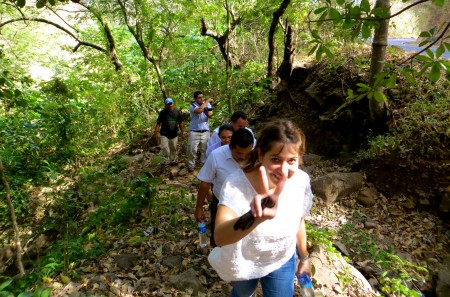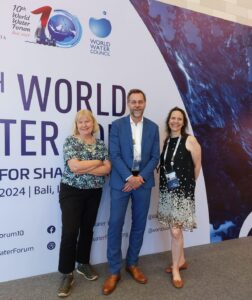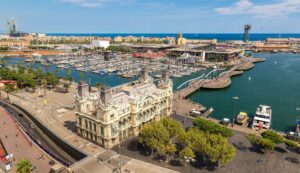Eruptions in El Salvador
“One of the main volcanoes in the country, called San Miguel, has shown some activity”. We all look at each other. San Miguel is the biggest volcano in the area to which we tomorrow plan to make our field trip. We tell the minister about our plan and she smiles and says “I hope you like adventures…!”
My colleague, Alejandro Jiménez, and I are in El Salvador, the smallest country in Central America, on a mission for GoAL WaSH – the SIWI/UNDP programme, targeting countries with slow progress in improving access to water and sanitation and which face significant governance challenges. El Salvador is still recovering from the civil war which lasted over a decade during the eighties and early nineties, and has several development needs. The country has been part of the GoAL WaSH programme since in 2011 and has worked to create a new legal and institutional framework for water governance at both national and local level. El Salvador has made great progress and during this trip we are both excited to see the results first hand.
We are in good company with the local GoAL WaSH team, who all like adventures, and after a risk assessment we make the decision to travel despite the threats of the volcano. Our goal is the Torola River Basin in the eastern part of the country. As in many other areas in El Salvador, communities in the Torola region have problems with both access to water and its quality. The GoAL WaSH project aims to change these problems for good.
The area has been designated as a territorial pilot, where water governance is being strengthened to ensure sustainable access to quality water for the local population. The pilot, supported by OFID (the OPEC Fund for International Development, is structured in two sections, one with a focus on infrastructure and the other with a focus on governance, where GoAL WaSH takes the lead. The pilot is also structured to support water governance at the national level. This recognition from the national government has also translated into plans for integration into public policy.
So far, we see that the project has ensured rehabilitation of the water system in one school, as well as constructed tanks and pipeline systems to supply 300 families in six municipalities in the Torola basin. All in all, more than a thousand people have benefited from this investment in infrastructure, and even more have benefited from other projects which have arisen within the framework of this initiative.
However, water management requires solutions beyond the hardware. Thus, priority has been given to capacity building and governance in the project.
Awareness raising among beneficiaries about the importance of the initiative resulted in involvement and dedication from the communities. This diligence has also resulted in improved coordination between stakeholders on national level, a significantmilestone, since there is a whole crowd of national institutions linked to water in El Salvador.
Coordination between these actors is key for the WaSH sector, and through this project government representatives have, for the first time, approached the Torola Basin region and establisheddirect dialogue with the local stakeholders. These achievements led to recognition by the government of the territorial pilot initiative as a model for improving water management in the country.
Our field trip turns out to be the best thing we have done in a very long time! With adrenaline pumping in our veins we pass the keen San Miguel volcano, where we clearly can see the smoke curling into the sky from the boiling lava. But once we get to the little town of Chapeltique in the Torola River Basin, our adrenaline shifts to total excitement. The engagement and the dedication we see in the people we meet highly exceeded our expectations!
We are given a great tour of the project, with the mayor inspiring and leading our group on the tour. We are shown the infrastructures of the project and the construction of the system in action. We finish the day with a game of football with the bubbling volcano watching in the background.
The governance model which is used in this initiative is truly like a volcano. The activity in the Torola River Basin is rapidly spreading and the local capacity and dedication can bring the WaSH sector in El Salvador to an eruption of sustainable water and sanitation solutions!








